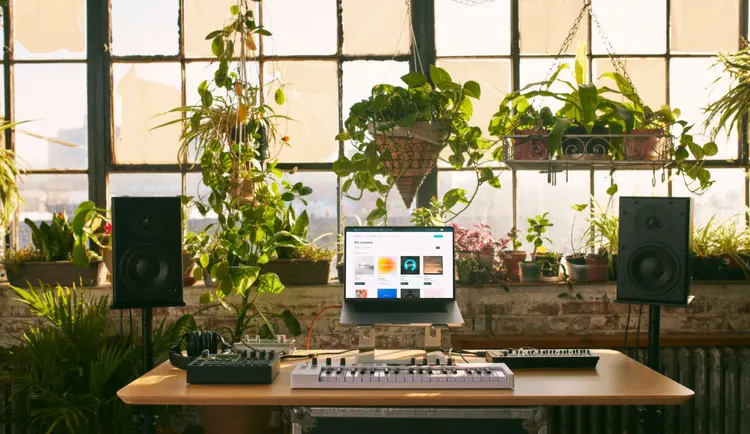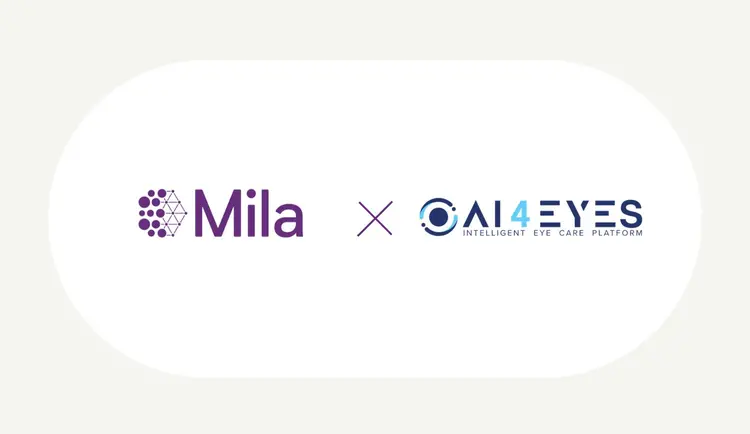
On June 26th, 2024, nearly 90 trainees of the AI4GoodLab program -which aims to make AI education more inclusive- presented at Mila the 17 machine learning prototypes they built over three weeks, applying knowledge gained from the program’s curriculum and exploring how AI can be used to address societal challenges.
This demo day was the culmination of 7 weeks of dedicated work by women and gender diverse participants from all across Canada.
This year, the lab adopted a new format with three in-person cohorts in Montreal, Toronto and Edmonton, and one fully virtual cohort to maintain the accessibility of the program. This model allowed for programming to be slightly varied among each cohort, creating opportunities to bring in regional experts on issues such as climate change and sustainability or generative AI.
Beyond machine learning lectures, trainees also attended talks and workshops designed to showcase real-life applications of AI for social good and put their knowledge into practice on topics such as ethics in AI, sustainability, robotics, creativity and entrepreneurship. This year, the Lab also added a session on preparing for a technical interview hosted by two of the Lab’s mentors from DeepMind.
Bringing together 17 teaching assistants, 6 lecturers and more than 40 guest speakers, including several AI4Good Lab alumni, 18 mentors, and 2 sponsors who supported this year’s cohort of future leaders, the 2024 edition of the AI4GoodLab helped trainees network and kickstart projects harnessing AI for social good.
Participants had to pitch ideas to their peers to identify social issues before working in teams and build solutions to address them. They developed AI prototypes designed to predict wildfires; reduce disparities in diagnosing skin diseases and cancer in people of color or help individuals with periods address nutritional deficiencies, a common issue due to menstruation and more.
“The Lab is all about collaboration, teamwork and curiosity. The teams came together to create this environment where they could thrive, where they weren't feeling pressure from grades or competition,” Jennifer Addison, Project Manager, AI4Good Lab, Public Policy and Inclusion at Mila said.
“It feels like something new, and part of that is because it's genuinely built around the needs of the participants and based on feedback from alumni that we take to heart. I'm really proud and grateful for it,” she concluded.
Here is a list of the teams who were selected for an Accelerator Award on demo day:
Edmonton Team 2: SightMap.ai
SightMap.ai is a comprehensive AI assistant tool to aid visually impaired individuals understanding and navigating their surroundings.
Toronto Team 1: Bridg.AI
Bridg.AI is preventing diagnostic delay for Endometriosis and Polycystic ovary syndrom by informing women of their most effective diagnostic tests based on their symptoms. Brig.ai bridges the gap between medical professionals and patients.
Montreal Team 4: unbIAsed.RX
unbIAsed.RX is an AI-powered platform for drug information and sex-based adverse reaction alerts, promoting greater awareness of pharmaceutical disparities, equitable research practices, and enhanced drug safety.
Virtual Team 2: PANDO
PANDO: Your dedicated community guard, designed to predict and prevent crowd-related disasters.





